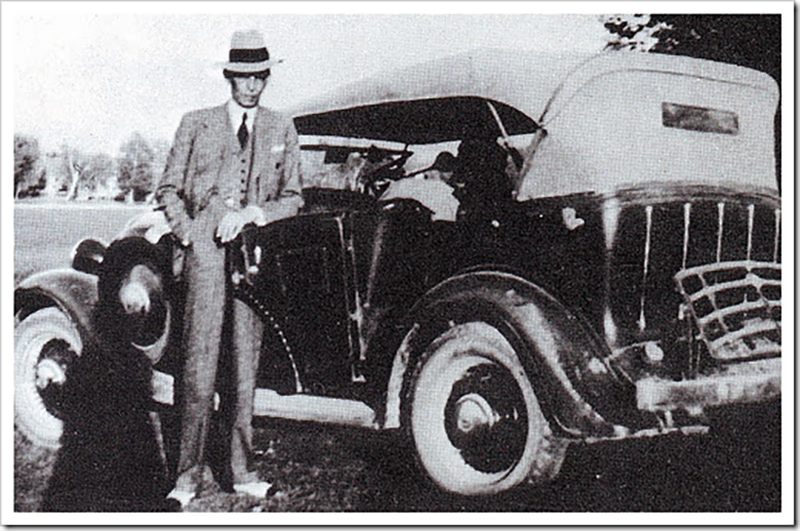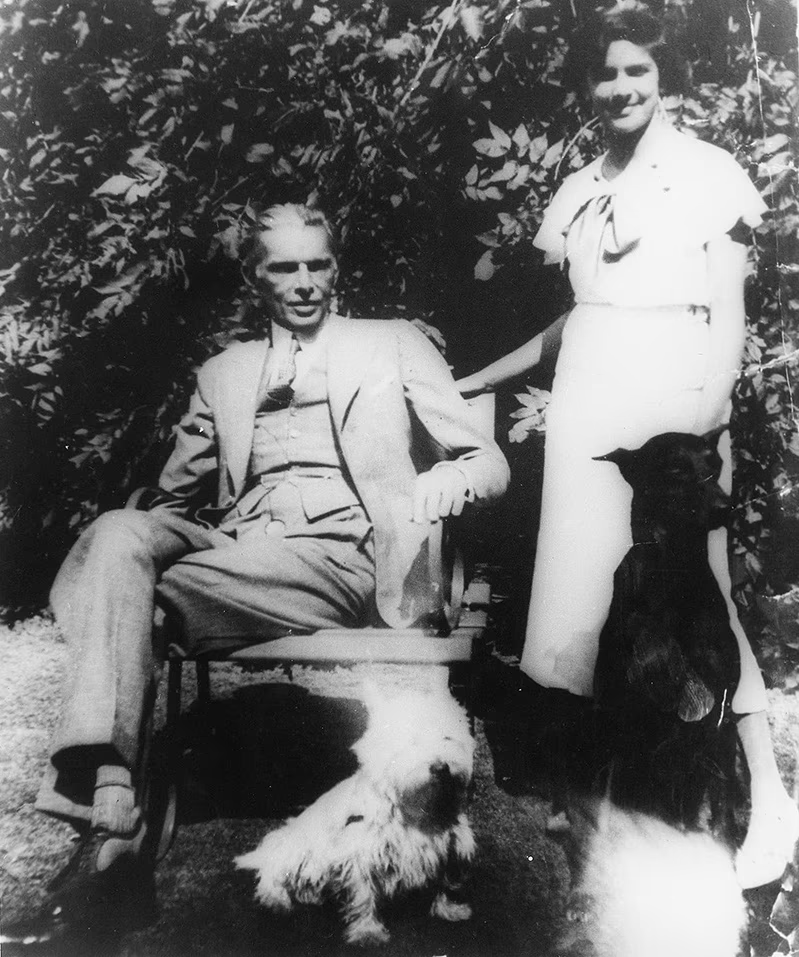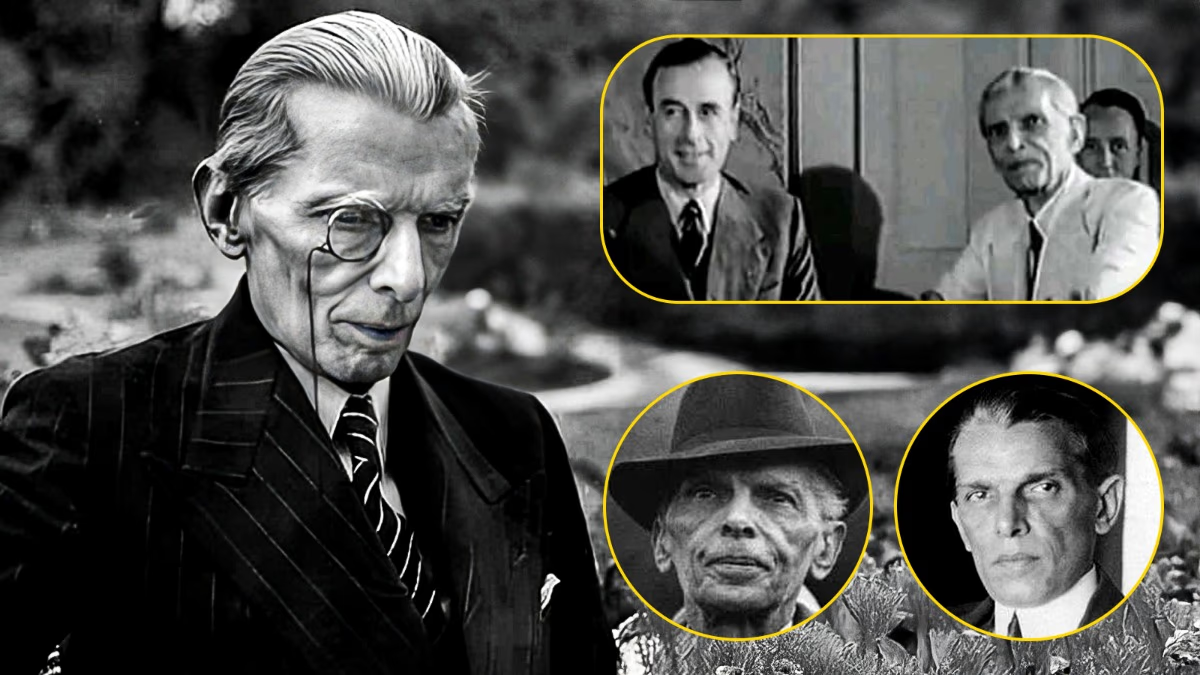'Doctor, I've known about my illness for 12 years; I just never revealed it, so the Hindus wouldn't wait for my death.'
When the renowned Lahore physician, Dr. Colonel Ilahi Bakhsh, informed Mohammad Ali Jinnah in July 1948 about his TB affliction, he responded without any sign of alarm or stress. However, Jinnah's frail body wasn't supporting his resilience.
On September 11, 1948, the founder of Pakistan, the nearly 6-foot-tall Mohammad Ali Jinnah, succumbed to lung cancer, leaving behind a body weighing only 40kg. Coughing would produce blood-stained phlegm, and despite reassurance from doctors post-injection, a dispirited Jinnah would assert, "No... I will not survive." These were the final, eventful, and almost unimaginable moments of his life.
Even at 71, despite his severe illness and being bedridden, this barrister, who made hefty earnings in law, had a profound penchant for sartorial elegance. He insisted on formal attire even during his last days. He would tell his sister Fatima Jinnah,
"I shan't die in pajamas."
Never Thought I'd Witness the Birth of Pakistan
According to a BBC report, Jinnah's biographer Stanley Wolpert writes, 'On August 7, 1947, when Jinnah arrived in Karachi from Delhi, he told naval Lieutenant S. M. Ahsan that he never expected to see Pakistan's creation in his lifetime.'
Yet, after countless deaths, massive devastation, and immeasurable loss of life and property, Jinnah succeeded in his mission. India was partitioned, and Pakistan was born. The day marking India’s and Pakistan’s formation, August 14, is remembered as Partition Horror Remembrance Day, honoring the violence, displacement, and sacrifices of that time.
Pork Sausages, an Elderly Muslim, and Jinnah's Lunch
Jinnah's health and the events across the Indian subcontinent intertwined like a sequence.
Mohammad Ali Jinnah was more political than religious, which reflected in his dietary habits, free from religious constraints. Writer Rehan Fazal references KL Ghauba, recounting a humorous tale by Mohammad Karim, a one-time assistant to Jinnah, who later became India’s Foreign Minister. Once, Jinnah and Karim partook in a meal at a renowned Bombay restaurant. Jinnah ordered two coffee cups, pastries, and pork sausages. While enjoying their meal, an elderly, bearded Muslim accompanied by a ten-year-old boy joined them. The boy quietly reached for a piece of pork sausage from the plate and tasted it. After they left, Jinnah chided Karim: ‘Shame on you, Chagla. Why did you let that boy eat pork sausages?’ Karim replied, ‘Mr. Jinnah, my dilemma was either I’d cause you to lose an election, or allow that boy to face God’s wrath. In the end, I chose in your favor.’
Passions, Cigars, and Cigarettes
In essence, Jinnah's preferences and culinary desires were refined. These habits were cultivated in London. Jinnah's biographer Hector Bolitho depicts his London years thus: 'While practicing law, Jinnah amassed wealth, residing in a large Hampstead house, employing an English driver for his Bentley, and having two chefs—an Indian and an Irishman—in his kitchen. Jinnah lived in Bombay's Malabar Hill and in a Lutyens-designed house in New Delhi. Tailored by Henry Poole, he reputedly never wore the same silk tie twice.'

Source: aajtak
Smoking was another facet of Jinnah’s luxurious lifestyle. A chain smoker, Jinnah consumed up to 50 cigarettes daily. Craven A was his preferred brand—a British cigarette brand initially made by Carreras Tobacco Company in 1921, known for being the first machine-made cork-tipped cigarette.
Additionally, cigar puffs were part of his leisure, with the precious Havana cigar smoke pervading his room.
Adjacent to his mausoleum in Karachi, a collection of his personal belongings can be seen, including an ivory napkin holder, a silver cigarette case, and his iconic cigarette lighter. Many of Jinnah's personal belongings bore his initials, M.A.J.
The Secret of TB, Coughing Jinnah, Blood Seeping from Lungs
Jinnah indulged his cigarette habit as an addiction. When he returned to India from London in 1935, he became aware of his deteriorating health.
Having smoked cigarettes and cigars virtually without pause for over 50 years, Jinnah's cough had become severe. When he coughed, blood-streaked phlegm would emerge. Jinnah was experiencing fever and weakness.
Yet Jinnah knew his role in shaping history. The barrister understood how a public revelation of his illness could undermine his negotiation prowess. So, he guarded the secret of his illness.
However, Fatima Jinnah, his sister, who always stayed near, noticed her brother's declining health. She consulted a doctor in Bombay, who suspected Jinnah had been gripped by TB.

Source: aajtak
Jinnah’s chest X-ray revealed alarming signs, with two large spots clearly visible in his lungs. The X-ray film painted a frightening picture of Jinnah's life.
In their acclaimed book on India's freedom, 'Freedom at Midnight,' authors Larry Collins and Dominique Lapierre provide an enthralling account of Jinnah's illness and its ramifications.
If Jinnah’s Illness Had Been Known, India’s Partition May Not Have Occurred
This secret was unknown even to the British Secret Service. In 'Freedom at Midnight,' Larry Collins and Dominique Lapierre, in conversations with India's first Governor-General Mountbatten, pointed to the inadequacies of his predecessor Lord Wavell (1944-47), who should have been more vigilant. “Wavell had one of the world's finest CIDs under his command,” Mountbatten observed.
Had the secret emerged, Asian history might have taken a different path. Possibly, India’s partition wouldn’t have happened.
Displaying statesmanship, Jinnah entrusted his doctor, J.A.L. Patel, with keeping the report secure indefinitely.
The repercussions of Mountbatten's disclosure about Jinnah's illness have profound implications on India's history. Mountbatten categorically admits, “Had I known Jinnah was enduring TB with little time left, I wouldn't have allowed India’s partition.”
Mountbatten’s account of Jinnah’s illness is elaborated on pages 57-58 in the book by Larry Collins and Dominique Lapierre. Speaking to the duo, Mountbatten explained, “I was unaware of Jinnah’s illness—nobody had a clue. Nobody suspected anything...”
Mountbatten further commented, “Jinnah functioned like a one-man band. Had someone informed me that he'd succumb within X months, I’d have contemplated—asking India to remain unified and avoid partition.”




